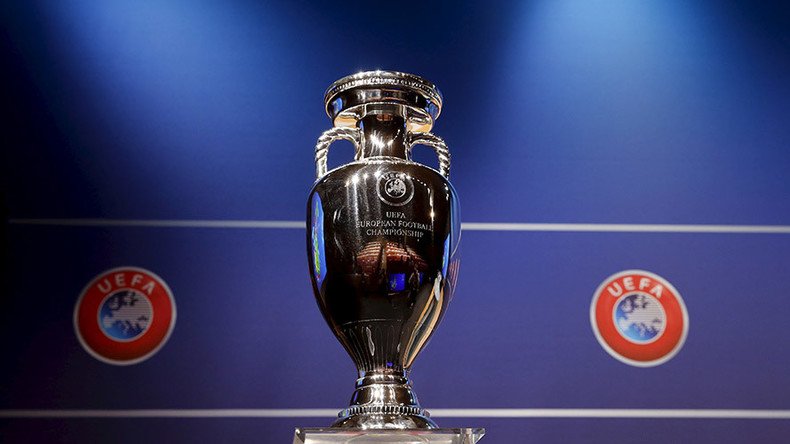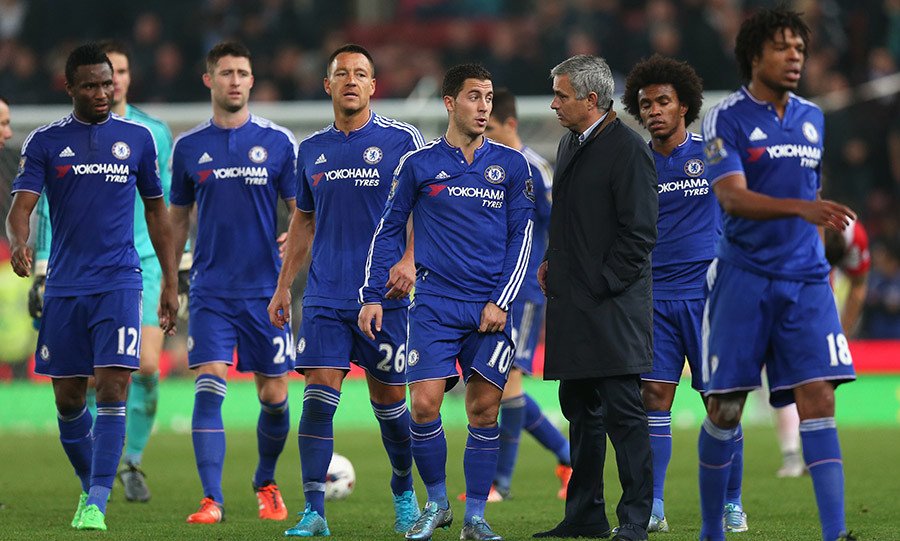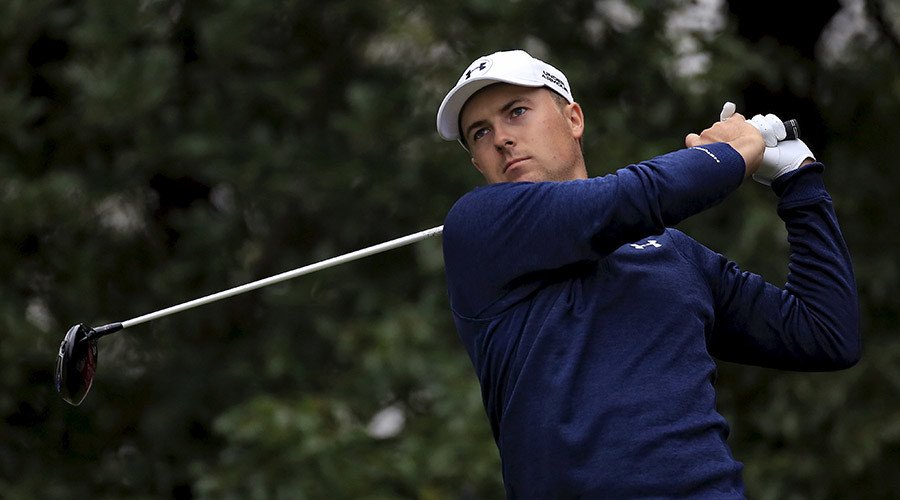Neil Clark’s Sporting Edge: Euros draw, first thoughts

As Europe heads into winter- a timely reminder of what should be a great sporting event to be held next summer. The draw for the 2016 European Football championships, to take place between 10th June and 10th July, was made in Paris on Saturday.
The new format for the tournament will be six groups of four teams with the top two in each group, plus the four best third-placed teams, making it through to the last sixteen.
The six seeds, France, England, Germany, Spain, Belgium and Portugal, should have few problems in making it to the knockout stages- and to be honest, it’s not hard to see them all topping their respective groups. Hosts France certainly couldn’t have asked for a kinder draw, being teamed with Albania, Romania and Switzerland, while the Germans probably won‘t lose too much sleep after being paired with Poland, Ukraine and Northern Ireland.
England kick off their group with a game on 11th June in Marseilles against Russia, who have looked a much improved team since Leonid Slutsky replaced Fabio Capello in the summer. Wales and Slovakia are decent outsiders who will both believe they have a chance of making it through to the last 16, with their clash in Bordeaux on 11th June, likely to prove decisive.
Spain, going for an unprecedented third Euros win in a row, have got it slightly tougher in group where Czech Republic and Croatia possess plenty of technical ability but Vicente del Bosque’s men should still win the group. The toughest group is undoubtedly Group E, where Belgium, the top-ranked team in Europe, are in with Italy, Sweden, and the well-organised Republic of Ireland. As Martin O’Neill, the manager of Ireland said in an interview afterwards, this is a group which effectively has two top seeds in it- Belgium and Italy.
While Portugal should win Group F, (provided Ronaldo isn’t injured) second and third placed looks up for grabs, between Austria, Hungary and Iceland. It’s certainly not the possible worse draw for Hungary, playing in their the finals of a major tournament for the first time since 1986, though Iceland, making their Euro finals debut, will be thinking the same.
As to who’s going to win the tournament, my two against the field remain Spain and Germany- with a resurgent England making some appeal to go deep into the tournament, or at least to the quarter-finals. Hosts France, with their very kind draw, also have to go on the short-list. As to who are going to be tournament’s dark horses, injuries are likely to prove significant, as there’s quite a few teams who look heavily dependent on one star player: think Portugal and Ronaldo, Sweden and Ibrahimovic and Poland and Lewandowski. If their stars stay fit, then these teams could be fancied to go deep into the tournament, but if they miss out then it could be an early exit.
So the smart move is to hold fire on your bets until the beginning of June when we know for sure who’ll be playing in France and who won’t.
Role reversal: How the Bundesliga became boring - and the Premiership exciting
What odds, I wonder, would you have got in August that on 12th December Bournemouth and Watford would be above champions Chelsea and Leicester City would be joint top of the English Premier League?

5,000-1 perhaps? The inconsistency of the so-called ’big’ teams in the Premiership- and the over-achievement of teams that many people thought would struggle- has been the feature of the season in England. While Chelsea, currently hovering just above the relegation zone, has been the most dramatic example of the mighty falling from grace, Liverpool and Manchester United have also shown inconsistency- the latter losing 2-1 at Bournemouth on Saturday, just days after they crashed out of the Champions League. And even though Manchester City are joint top, they too have been strangely unimpressive in recent weeks, only scrambling home with a 92nd minute winner against struggling Swansea at the Etihad on Saturday.
A few years ago football romantics in England bemoaned the uncompetitiveness of the ’Big Money’ Premiership-and looked across longingly to other European countries where the top divisions were more exciting- with particular reference to Germany. But now the position has been reversed- and it’s the Bundesliga that looks dull and predictable.
At time of writing, Bayern, Bundesliga champions for the last three years, have an eight-point lead over Dortmund- with the pair (the only teams to win the title since 2009) a whopping fourteen points clear of third-placed Hertha Berlin. Bayern have won 14 of their 16 games. How boring is that?
It’s a similar story of elite domination in Spain, where despite Barcelona being pegged back to a 2-2 draw at home to Deportivo this weekend- the ‘Big Three’ of Barca, Real and Atletico are clear of fourth-placed Celta Vigo. In Portugal, Sporting and Porto are six points clear of Benfica, in the Netherlands, the ‘Big Three’ of Ajax, Feyenoord and PSV have an eight point gap over the team in fourth, Heracles. The most uncompetitive of Europe’s major leagues is France, where Qatar Investment Authority-owned PSG, winners for the past three years, have yet to lose and match and already have a fifteen point lead over Angers.
In England by contrast just seven points separates the top seven, and just nine points separates the top eleven teams. Of course, it could all change in the New Year as the richest clubs get out their cheque-books and try and buy players from the overachieving teams during the January transfer window. For the good of the league, it’s hoped that doesn’t happen- and its heartening to hear that Leicester City, the Number One surprise package of the season, have said they won’t be selling any of their key players.
The longer the Premiership retains its competitive nature- the better it will be for English football. And as we continue (hopefully) to enjoy a season of great unpredictability in England, we can’t help feeling sorry for fans in France, where the title race is already wrapped up at Christmas.
Announcing- The Sporting Edge awards for 2015
It’s the time of the year when we’re awash with sporting awards. So to add to them- here’s mine:
Club football team of the year:
Barcelona. Back to their something like their scintillating best when winning their fifth Champions League in May - their first since 2011. They’re currently top of La Liga, with the highlight of the season so far being a stunning 4-0 away win at Real in November.
International football team of the year:
A three-way dead-heat between Ivory Coast, Northern Ireland and Iceland.
The Ivorians won their second African Cup of Nations in February (and their first since 1992), with the highlight being a 3-1 victory over an excellent Algeria team in the quarter-finals. But honourable mentions too for Northern Ireland and Iceland, both of whom defied the odds to make it next years Euros. The former won qualifying Group F despite being unseeded, while the latter became the smallest nation ever to qualify for the finals of a major tournament.
Golfer of the year: Jordan Spieth
The 22-year-old had a sensational 2015, landing the first two Majors, and coming very close to achieving the hat-trick up in the British Open in July. He then finished second in the final Major of the year, the USPGA in August. With time very much on his side, the Texan could end up as one of the greatest golfers of all time.

Athlete of the Year: Genzebe Dibaba
The Ethiopian runner broke the world record for the women’s 1500 metres in the summer and also won the world title in that event in Beijing. She also came third in the 5,000 metres.
Tennis player of the year (Men); Novak Djokovic
Winner of three of this year’s four Slams- and beaten finalist in the other, it’s time the world number one got more applause for his achievements - as I argued in last week’s Sporting Edge last week
Tennis player of the year (Women): Serena Williams
Winner of three of this year’s four Slams, with the only blemish being a shock semi- final defeat to Roberta Vinci in the US Open. Serena is closing in on Margaret Court‘s all time record of 24 Grand Slam singles titles- she now stands on 21.
Biggest sporting shocks of 2015:
You would have needed quite a good crystal ball to have predicted the all-Italian women’s final at the US Open tennis - between the 33-year-old number 26 seed Flavia Pennetta and the unseeded Roberta Vinci.
Leicester City’s transformation from near-certainties for relegation from the English Premiership in April, to league leaders in December, has also been remarkable.
Mention too for Japan’s 34-32 win over South Africa in the Group stage of the Rugby Union world cup - described by many as the greatest shock in the sport’s history.
Neil Clark tweets on sport @MightyMagyar
The statements, views and opinions expressed in this column are solely those of the author and do not necessarily represent those of RT.













